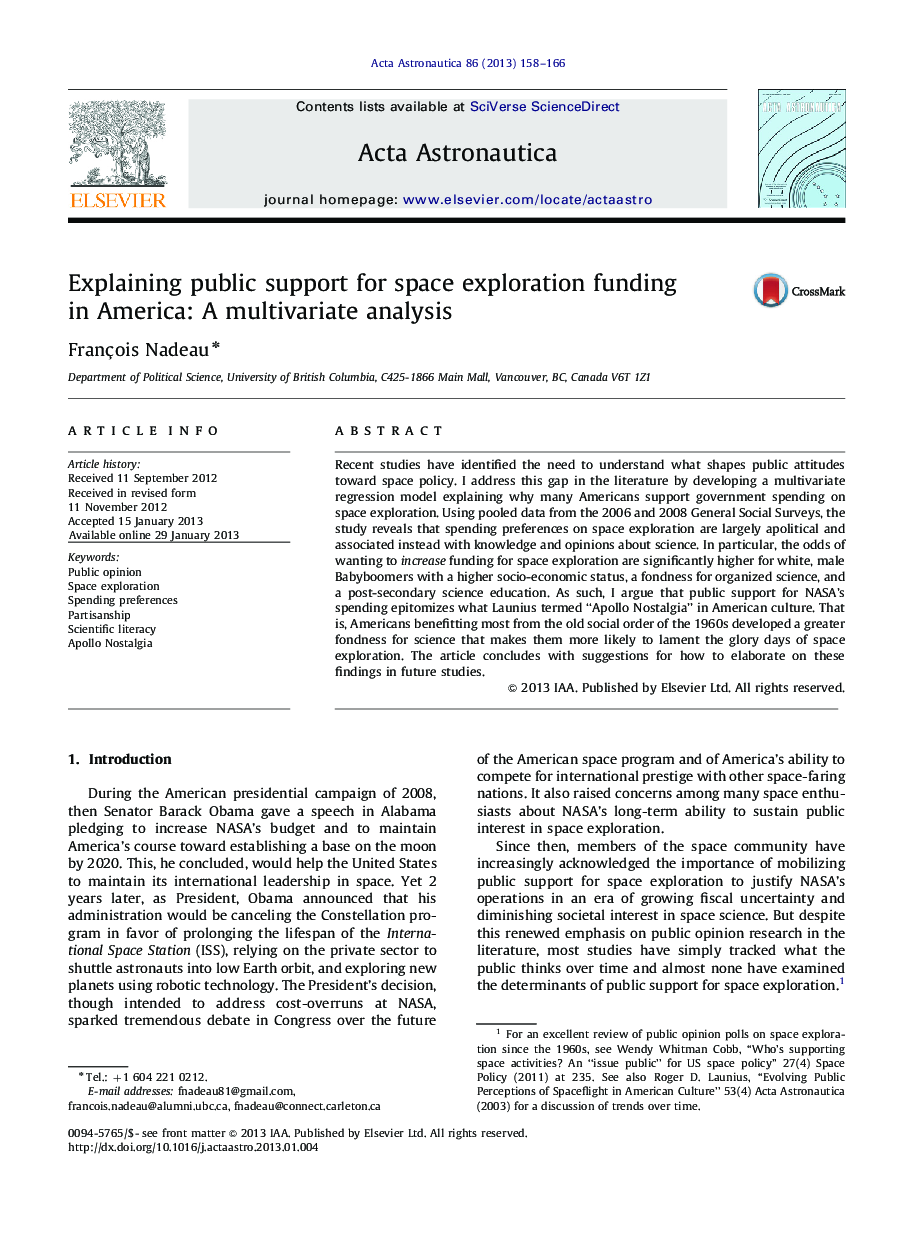| Article ID | Journal | Published Year | Pages | File Type |
|---|---|---|---|---|
| 1715014 | Acta Astronautica | 2013 | 9 Pages |
Recent studies have identified the need to understand what shapes public attitudes toward space policy. I address this gap in the literature by developing a multivariate regression model explaining why many Americans support government spending on space exploration. Using pooled data from the 2006 and 2008 General Social Surveys, the study reveals that spending preferences on space exploration are largely apolitical and associated instead with knowledge and opinions about science. In particular, the odds of wanting to increase funding for space exploration are significantly higher for white, male Babyboomers with a higher socio-economic status, a fondness for organized science, and a post-secondary science education. As such, I argue that public support for NASA's spending epitomizes what Launius termed “Apollo Nostalgia” in American culture. That is, Americans benefitting most from the old social order of the 1960s developed a greater fondness for science that makes them more likely to lament the glory days of space exploration. The article concludes with suggestions for how to elaborate on these findings in future studies.
► Address lack of research on what shapes public opinion toward space exploration. ► Develop multinomial regression model predicting spending preferences on NASA. ► Spending preferences are apolitical; correlate with higher scientific literacy. ► Whites, males, and Babyboomers with higher status prefer increasing spending. ► Findings reflect what Launius called ‘Apollo Nostalgia’ in American culture.
